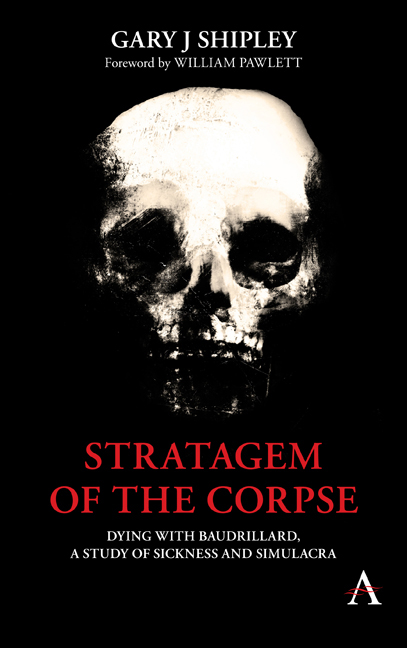Book contents
- Frontmatter
- Dedication
- Contents
- Acknowledgements
- Foreword by Pawletts William
- Introduction
- Chapter 1 On Decay and Other Synthetics
- Chapter 2 Stratagem of the Corpse
- Chapter 3 A Bleak Non-History of History
- Chapter 4 The Hyperactivity of Objects
- Chapter 5 The Unnamable Catastrophe
- Chapter 6 A Cure for Vertigo
- Chapter 7 Chance and the Temporality of Death
- Chapter 8 The Possibility of Nihilism
- Chapter 9 Smell-O-Vision: The Murder Show
- Chapter 10 The Evil Death
- Chapter 11 False Confessions and the Madness of Death: Making Death Speak
- Chapter 12 Black Light: Nigredo and Catastrophe
- Appendix 1 Whiteout: Spatiotemporal Interstices, Necropresence and the Immortality of Now
- Appendix 2 Pure Dreaming: Radicalized and Vermiculated Thought, or Death as an Earworm
- Appendix 3 The Non-Existence of the Scream
- Index
Chapter 8 - The Possibility of Nihilism
Published online by Cambridge University Press: 20 February 2020
- Frontmatter
- Dedication
- Contents
- Acknowledgements
- Foreword by Pawletts William
- Introduction
- Chapter 1 On Decay and Other Synthetics
- Chapter 2 Stratagem of the Corpse
- Chapter 3 A Bleak Non-History of History
- Chapter 4 The Hyperactivity of Objects
- Chapter 5 The Unnamable Catastrophe
- Chapter 6 A Cure for Vertigo
- Chapter 7 Chance and the Temporality of Death
- Chapter 8 The Possibility of Nihilism
- Chapter 9 Smell-O-Vision: The Murder Show
- Chapter 10 The Evil Death
- Chapter 11 False Confessions and the Madness of Death: Making Death Speak
- Chapter 12 Black Light: Nigredo and Catastrophe
- Appendix 1 Whiteout: Spatiotemporal Interstices, Necropresence and the Immortality of Now
- Appendix 2 Pure Dreaming: Radicalized and Vermiculated Thought, or Death as an Earworm
- Appendix 3 The Non-Existence of the Scream
- Index
Summary
In a world made hyperreal, saturated with versions of itself, saturated with meaning, nihilism's simplicity and emptiness return from forgotten thinkers like some ancient remedy long mistaken for a symptom: an earlier curative to a later malaise, a medicament in search of a condition that has laid patiently in wait only to arrive now, most likely too late. For what amounts to an atavistic chemotherapy for hypermodernity's new cancer comes at a time when sickness is no longer permitted; and while nihilism is (like Christianity, like God) a sickness that cures, it comes with no anti-emetic, so that the only way out of nihilism is to go further inside it.
The desire will be, of course, to assimilate it, to have nihilism mean something other than the removal of meaning, to have it become a source of meaning, a theoretical device hiding further theoretical devices that belie its surface ugliness. In other words, a game will be made of it, and things will once again be at stake, when at face value there is no stake, no investment worth making, no sense in anything but life's own senselessness. The problem is that nothing can be allowed to have just one face, especially when the face is as hard to look at as this one. I cannot just be cured, I must also be cured from that which cures me, and so on. For while nihilism offers the solution of lightness and transparency to an otherwise bloated and occluded existence, there is always the issue of the remainder, the side effect of the disappearance that leaves something behind, the apocalypse that never comes, for ‘there is no longer an apocalypse’, the face behind the face that told you it wasn't there. The cure is over and now we must be cured again, because the cure did not destroy enough of the disease, because the cure has a life of its own, because the cure itself needs to reproduce, because we were the sterile petri dish to nihilism's culture and its growth demanded our growth, a symbiotic swell of neutrality and indifference, a desert in which each grain of sand, despite its self-professed insignificance, remains more than itself, remains fascinated by its own accumulated disappearance: for once ‘you eliminate disappearance, there is no more singularity’.
- Type
- Chapter
- Information
- Stratagem of the CorpseDying with Baudrillard, a Study of Sickness and Simulacra, pp. 99 - 110Publisher: Anthem PressPrint publication year: 2020



